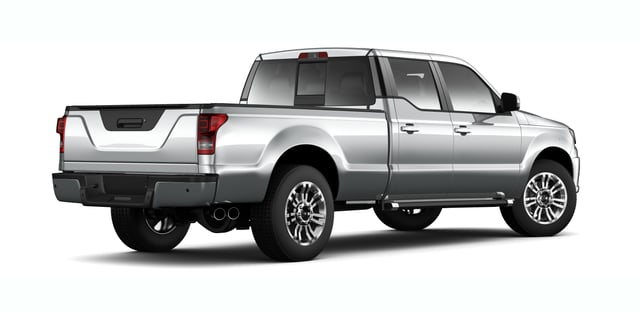As a businessowner you just want to get business done and not worry about what may seem like the small stuff. Why would it matter if you have a personal NH car insurance policy instead of a NH commercial auto policy? Here is critical information as to why or why not it may be a big deal for you and your business.
Comparing NH personal auto insurance and NH commercial auto insurance
As insurance agents, we are fully aware that we sound very nit-picky when it comes to talking about vehicles, titles and ownership. We have seen it in the expression of many clients over the years who silently think to themselves, "what business is it of yours how I register my car. That has nothing to do with my driving record or what I should pay for insurance."
Unfortunately, it has everything to do with your insurance as the most basic rule of insurance is that you can't insure something you do not own. This is obvious as you would not normally expect an insurance company to pay you if you decided, for some reason, to insure your neighbor's car.
The lines however get a little murkier in the mind if you are a NH small business owner and your business owns the vehicle, that is ultimately owned by you. Unless you are a sole-proprietor, you don't actually own your vehicle, your company does. "What is the difference," you may think. It is all ultimately paid by you in the end. The difference is that an insurance policy is a contract. A legal document that will be fulfilled assuming the terms and conditions are met. If your vehicle does not qualify as your vehicle then the contract and hence coverage could be voided.
What You Should Consider If You Sometimes Use Your Car in Business
If you have a vehicle titled, registered and insured on a personal auto policy, but you sometimes use it in business, you may be able to keep your personal auto policy, but have it rated as business use. The business-use classification on a personal auto policy is used for the person who may not commute to a single location every day, but instead is out on the road. This may be a house cleaner or someone who is in sales, but it is not intended for someone who may drive clients around, like a real estate agent.
When you Absolutely Must Have a Business Auto Policy and Not a Personal Auto Policy
- If your vehicle is owned and registered to a business,
- If your vehicle is ever used by your employee while in the course of employment,
- If your vehicle is ever used for public or livery conveyance, or
- If you ever pick-up or deliver customer goods. This is true if the "customer" was just another business, like one contractor delivering goods to another contractor. Delivery is delivery.
If you have a claim under any of these circumstances, the insurance company may deny the claim given they are listed under exclusions in the standard personal auto policy.
What You Need to Know If Your Business "Owns" Your Car
As a small business owner, you know you pay your fair share in taxes. Perhaps your accountant suggests that you should buy your next car in the name of the business as a write-off. Sound good? That may be good for taxes, but not so great for your car insurance policy. As mentioned, if your business owns your car, your business must insure it, so you will most likely need to get a business auto policy. This can be good or bad for you, depending on your situation. We strongly suggest that before you buy a vehicle in the business name that you speak with an insurance professional. Get the information you need BEFORE you sign the paperwork to make the best decision possible for you and your business.
What If You Have a Sign on Your Vehicle?
If you have any signage on your vehicle, whether permanent or a removable magnetic sign, and you have a personal auto policy you must check with your insurance representative. Some companies are very strict about signage, while others are not, depending on the circumstance. It is better to check before you invest in a sign, or even worse, have a large claim that is denied because of the $30 magnetic sign you had on your vehicle at the time of an accident.
What If I Have a Large Truck or Van That I Only Use Personally?
In most personal auto policies there is a maximum weight limit for any vehicle. This weight is typically 10,000 gross vehicle weight (GVW). Though we don't usually see personal trucks or vans greater than this, it can occasionally come up if someone buys a very large Hummer, Ford 350 or large van. Check with your insurance representative if considering a larger than average vehicle. What If I Pull a Trailer with My Truck?
What If I Pull a Trailer with My Truck?
If you are pulling a trailer for business purposes at any time, you would most likely need a business auto policy.
Regardless if it is a personal or commercial policy, you don’t want to assume the trailer is automatically covered. Sometimes the weight or type of trailer can be an issue. You don't want to find out after your trailer detaches from the hitch and damages multiple cars on the highway that there is no coverage. Find out from your insurance professional in advance!
Please be aware that there is NEVER any collision or comprehensive (ex: fire, theft, vandalism) coverage on any trailer if it is not specifically listed on the policy whether on a personal or commercial auto policy. Coverage must be added separately, with the premium based on the cost of the trailer.
What if I Have a Plow or Cap on My Truck?
Typically, on a personal policy, if you have a plow, cap or other removable equipment, coverage for any customization must be added to the policy separately. If you plow your own driveway, or perhaps a neighbor's for free, you may be able to have a personal auto policy, but check with your insurance representative to be sure. You would need to add custom parts and equipment coverage for the plow, which is typically capped at $5,000.
If you ever plow for a fee you will need a business auto policy. Please also keep in mind that the plow itself and any other removable equipment should be insured on a separate Inland Marine policy to provide coverage for the equipment while on or off the vehicle. The commercial auto policy would only include coverage for removable equipment while attached to the vehicle.
For more information about insuring your snowplow, read "Is the Snowplow Covered on My Truck" from the HPM blog archives.
Benefits of a Business Auto Policy vs. a Personal Auto Policy
HPM Insurance would most likely always advocate a business auto policy if you are using your vehicle in business; however, there may be other reasons to consider the business auto policy.
- When you use your vehicle for business you increase your “on the road presence” with more overall usage and signage exposure.
- The liability limit choices available are greater than a typical personal auto policy.
- Available coverage when pulling a trailer.
If you own a business and ever use your car or truck in business, you should strongly consider a NH business auto policy. Many people assume that a business auto policy is more expensive than a personal auto policy, but this is not always true. This will depend on your unique situation.
To make the best decision, speak with an insurance representative, like the professionals at HPM Insurance where they have both personal and commercial auto insurance experts available to provide you the information necessary to make an informed decision.
Like anything in business, the devil is in the details, and though we may sound like devils when we tell you that you can't have a personal auto policy, we are really trying to be your savior in the end to prevent any financial hardship.
Drive safe!


